Whatever Next?
Earlier this year we asked our authors for their thoughts, hopes, suggestions, fears, proposals about what on earth is happening and how the world might look after the pandemic... and what we might do to bring about necessary change. Here's what they wrote:
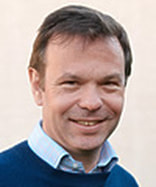
Graham Leicester on Beyond Survival
The thread weaving through Graham's essays is hope – practical hope:
“Raymond Williams tells us that our task is “to make hope possible rather than despair convincing”. But for me hope is always possible. The real challenge at this point is to make it convincing. Then it might attract the resources to match our ambitions and ... hope might frame for everyone the invigorating spirit of the next phase – recovery and renewal. Despair is more alluring. ‘The devil always has the best tunes.’ The hopeful story, by contrast, touches a precious place in us and is more demanding of the listener. It is easier to dismiss visionary alternatives as unrealistic and utopian than to acknowledge that their very imagining represents a challenge to who we are, what we regard as living, and what we are prepared to stand for today.
The first resource is survival. For now, most of us have retreated into our homes ... But outside the world has changed and to re-enter it, find our accommodation with it, realise our dreams within it, we will have to make sense of it afresh – we will need insight. This is no quick fix – even as we dream of a vaccine and a cure. There will be other challenges ahead and other forces set to thwart us. The journey from survival to insight to action to realisation is going to take time and perseverance. Which points to the importance of hope, the most vital resource in every sense, without which we cannot even start the journey.
Read the full article. Graham is the author of Transformative Innovation and co-author of Dancing at the Edge and 10 Things to do in a Conceptual Emergency.
The thread weaving through Graham's essays is hope – practical hope:
“Raymond Williams tells us that our task is “to make hope possible rather than despair convincing”. But for me hope is always possible. The real challenge at this point is to make it convincing. Then it might attract the resources to match our ambitions and ... hope might frame for everyone the invigorating spirit of the next phase – recovery and renewal. Despair is more alluring. ‘The devil always has the best tunes.’ The hopeful story, by contrast, touches a precious place in us and is more demanding of the listener. It is easier to dismiss visionary alternatives as unrealistic and utopian than to acknowledge that their very imagining represents a challenge to who we are, what we regard as living, and what we are prepared to stand for today.
The first resource is survival. For now, most of us have retreated into our homes ... But outside the world has changed and to re-enter it, find our accommodation with it, realise our dreams within it, we will have to make sense of it afresh – we will need insight. This is no quick fix – even as we dream of a vaccine and a cure. There will be other challenges ahead and other forces set to thwart us. The journey from survival to insight to action to realisation is going to take time and perseverance. Which points to the importance of hope, the most vital resource in every sense, without which we cannot even start the journey.
Read the full article. Graham is the author of Transformative Innovation and co-author of Dancing at the Edge and 10 Things to do in a Conceptual Emergency.
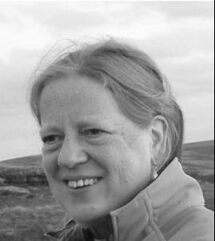
Candida March on Zoom
"My eyes are fixed to the screen. To look away is to look to a space where they, my friends, are not. So everything becomes forward focussed, on a tiny screen. My body radar is also forward focussed, and narrowly focussed. I am receiving information through my eyes and ears, my mirror neurons are firing in response to the person, but I am not receiving body-to-body information directly in the room. My body is confused – it is alert for the information to arrive … and it doesn’t."
So, the practice feels one of playing with Zoom, finding ways to reconnect with my own interiority so that I can be better present in this new dance; broadening and softening my gaze in and out of frame; finding ways to bring relaxation to my body so that my bodymind can follow. The practice feels one of daring to follow Mary Oliver’s line “You only have to let the soft animal of your body love what it loves”...
Read the full article. Candida is a coach with a special interest in somatic awareness and movement.
"My eyes are fixed to the screen. To look away is to look to a space where they, my friends, are not. So everything becomes forward focussed, on a tiny screen. My body radar is also forward focussed, and narrowly focussed. I am receiving information through my eyes and ears, my mirror neurons are firing in response to the person, but I am not receiving body-to-body information directly in the room. My body is confused – it is alert for the information to arrive … and it doesn’t."
So, the practice feels one of playing with Zoom, finding ways to reconnect with my own interiority so that I can be better present in this new dance; broadening and softening my gaze in and out of frame; finding ways to bring relaxation to my body so that my bodymind can follow. The practice feels one of daring to follow Mary Oliver’s line “You only have to let the soft animal of your body love what it loves”...
Read the full article. Candida is a coach with a special interest in somatic awareness and movement.
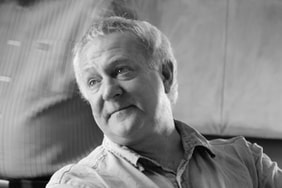
Dr. Phil Smith on Walking in a time of Virus: Helplessness
Despite Baudrillard’s provocative assertion that the 1990/1 Gulf War ‘only happened on TV’ (he didn’t actually believe that, rather that its reality had been subsumed by its representation), the Covid pandemic has been the first global collective experience of this simulacrum. The mass home-arrest of the population has created the first worldwide shared experience of a specific, all-encompassing unreal. Caused not so much by the virus forcing people into their homes and in front of their screens, as by the way the global disruption halted the trajectory of normal life, froze it and held it up for a while for examination, and it looked strange. The collectivity of this is new.
Read the full article.
See also his piece on: Undoing the Future
Repetition and Difference – the disruption, the V-effect of the Virus (die Verfrempesteffekt), reveals unexpected processes. Without football, there is less desire for football; similarly with the cancelation of new episodes of long-running soap operas. These products of the ‘creative industries’ are exposed as not gratifying desires (which were not there in the first place) but fabricating desires for repetition. Suspense, competition, close run things; these appear to generate energy, but result only in closed circles. The Virus halts culture, which judders, stutters; it becomes capable of a difference which disrupts the order of events. The body does not perceive the static, but only when a change occurs; let the Body be the cultural Key. Read the full article.
See also his more recent piece on Thinking with Uncertainty. Phil is the author of Mythogeography, Guidebook for an Armchair Pilgrimage, the forthcoming TNT The New Theatre and much else.
Despite Baudrillard’s provocative assertion that the 1990/1 Gulf War ‘only happened on TV’ (he didn’t actually believe that, rather that its reality had been subsumed by its representation), the Covid pandemic has been the first global collective experience of this simulacrum. The mass home-arrest of the population has created the first worldwide shared experience of a specific, all-encompassing unreal. Caused not so much by the virus forcing people into their homes and in front of their screens, as by the way the global disruption halted the trajectory of normal life, froze it and held it up for a while for examination, and it looked strange. The collectivity of this is new.
Read the full article.
See also his piece on: Undoing the Future
Repetition and Difference – the disruption, the V-effect of the Virus (die Verfrempesteffekt), reveals unexpected processes. Without football, there is less desire for football; similarly with the cancelation of new episodes of long-running soap operas. These products of the ‘creative industries’ are exposed as not gratifying desires (which were not there in the first place) but fabricating desires for repetition. Suspense, competition, close run things; these appear to generate energy, but result only in closed circles. The Virus halts culture, which judders, stutters; it becomes capable of a difference which disrupts the order of events. The body does not perceive the static, but only when a change occurs; let the Body be the cultural Key. Read the full article.
See also his more recent piece on Thinking with Uncertainty. Phil is the author of Mythogeography, Guidebook for an Armchair Pilgrimage, the forthcoming TNT The New Theatre and much else.
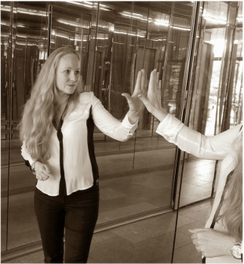
Nora Bateson on My Health Is Not My Own
"My health is not my own. My health is the whole community’s, it belongs to the elderly, the youth, and even to the biome of organisms that live in my body and in the soil. This, is the opposite of everything that the last centuries of manufacturing, education and politics have forged into societal infrastructure and even the making of identity.It is easier to identify myself by my profession, my address or my car than to recognize that I am a living system in relation to other living systems. I am not me, I am a vessel of the past and the future. In this moment what is asked of me is that I recognize the harms the systems of the past have wrought, and make radical changes so that the future is not burdened with the same destructiveness as the past."
Read the full article.
Nora is the author of Small Arcs of Larger Circles
"My health is not my own. My health is the whole community’s, it belongs to the elderly, the youth, and even to the biome of organisms that live in my body and in the soil. This, is the opposite of everything that the last centuries of manufacturing, education and politics have forged into societal infrastructure and even the making of identity.It is easier to identify myself by my profession, my address or my car than to recognize that I am a living system in relation to other living systems. I am not me, I am a vessel of the past and the future. In this moment what is asked of me is that I recognize the harms the systems of the past have wrought, and make radical changes so that the future is not burdened with the same destructiveness as the past."
Read the full article.
Nora is the author of Small Arcs of Larger Circles
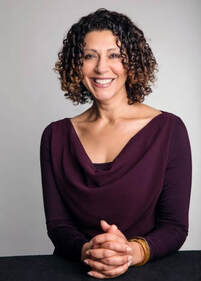
Dr. Nelisha Wickremasinghe on The rise of the introvert
Extravert characteristics and capabilities are valued and encouraged in Western cultures. Talking a lot, getting things done, risk taking, quick decision making and the preference for high levels of stimulation are common habits of extraverts and we see these habits thrive in competitive, evaluative cultures. Business and organisational culture is often defined by such behaviours.
In the recent lockdown, many of us have been forced in on ourselves with time and uncertainty as our new companions. Instead of killing time online and on screen, and instead of awaiting certainty with the impatience of a restless extravert, we could view this moment in our history as an opportunity to re-discover purpose and pleasure in a quieter, slower and less outwardly focused life. In doing so we might emerge from this crisis with new capabilities and preferences that could change the way we relate to each other and to nature. Certainly, workplaces of the future need to be redesigned for both extraverts and introverts to contribute and thrive. That redesign needs to start now... Read the full article.
Nelisha is the author of Beyond Threat and the forthcoming Being with Others.
Extravert characteristics and capabilities are valued and encouraged in Western cultures. Talking a lot, getting things done, risk taking, quick decision making and the preference for high levels of stimulation are common habits of extraverts and we see these habits thrive in competitive, evaluative cultures. Business and organisational culture is often defined by such behaviours.
In the recent lockdown, many of us have been forced in on ourselves with time and uncertainty as our new companions. Instead of killing time online and on screen, and instead of awaiting certainty with the impatience of a restless extravert, we could view this moment in our history as an opportunity to re-discover purpose and pleasure in a quieter, slower and less outwardly focused life. In doing so we might emerge from this crisis with new capabilities and preferences that could change the way we relate to each other and to nature. Certainly, workplaces of the future need to be redesigned for both extraverts and introverts to contribute and thrive. That redesign needs to start now... Read the full article.
Nelisha is the author of Beyond Threat and the forthcoming Being with Others.
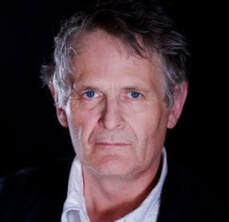
Ivo Mosley on Money
"Lockdown is an ideal time to consider some simple truths that we’re normally content to ignore. One of these truths is about how money is created, rented out and destroyed again by private banks. This process is a blind spot for most professional economists. Economists’ blind spots can have a devastating effect. This one creates massive inequality and puts us in the power of people who work only to get richer.
In the past few years, governments have been creating so much money – first through ‘quantitative easing’ and now for those affected by corona virus – that interest rates have been driven close to zero. This means that profiteers are borrowing, buying and exploiting the rest of us very cheaply. The situation could change overnight if banks were no longer allowed to create 'deposit money' by multiplying 'bank reserve'. Money would then become what most of us wrongly imagine it is anyway: a means of exchange created by the government that circulates indefinitely. People have been campaigning for this simple piece of justice ever since laws allowing banks to create money were first passed. Surely it’s a case of ‘now or never’ if we wish to continue living much longer on this earth. Read the full article. Ivo is the author of Bank Robbery.
"Lockdown is an ideal time to consider some simple truths that we’re normally content to ignore. One of these truths is about how money is created, rented out and destroyed again by private banks. This process is a blind spot for most professional economists. Economists’ blind spots can have a devastating effect. This one creates massive inequality and puts us in the power of people who work only to get richer.
In the past few years, governments have been creating so much money – first through ‘quantitative easing’ and now for those affected by corona virus – that interest rates have been driven close to zero. This means that profiteers are borrowing, buying and exploiting the rest of us very cheaply. The situation could change overnight if banks were no longer allowed to create 'deposit money' by multiplying 'bank reserve'. Money would then become what most of us wrongly imagine it is anyway: a means of exchange created by the government that circulates indefinitely. People have been campaigning for this simple piece of justice ever since laws allowing banks to create money were first passed. Surely it’s a case of ‘now or never’ if we wish to continue living much longer on this earth. Read the full article. Ivo is the author of Bank Robbery.
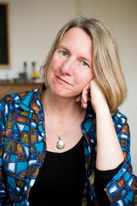
Dr. Alyson Hallett on Walking towards a different future
"Early on Sunday morning I walked down the middle of a road on the white lines. I did it because I could: there was no traffic. It was quietly liberating and reminded me of other times when I have marched in the middle of roads, as an act of protest -- demanding action on climate change and protesting against the invasion of Iraq. Inhabiting spaces that are usually out of bounds gives us a visceral experience of things being different and lets us imagine that change is possible. For a few short hours we feel powerful, visible, united in our demands for a better world. This early morning adventure in the middle of the road was different though. I was not for or against anything, I carried no placards, had no slogans to chant." Read the full article.
Alyson is the author of Stone Talks and co-author of Walking Stumbling Limping Falling.
"Early on Sunday morning I walked down the middle of a road on the white lines. I did it because I could: there was no traffic. It was quietly liberating and reminded me of other times when I have marched in the middle of roads, as an act of protest -- demanding action on climate change and protesting against the invasion of Iraq. Inhabiting spaces that are usually out of bounds gives us a visceral experience of things being different and lets us imagine that change is possible. For a few short hours we feel powerful, visible, united in our demands for a better world. This early morning adventure in the middle of the road was different though. I was not for or against anything, I carried no placards, had no slogans to chant." Read the full article.
Alyson is the author of Stone Talks and co-author of Walking Stumbling Limping Falling.
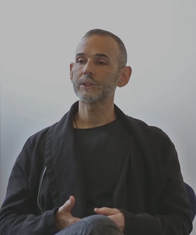
Ernesto Pujol on The Heroic
"Until this pandemic, it was very easy to be a hero in a society where no one lifted a finger. For most Americans, the heroic had been split into two equally perverse categories. On the one hand, there was the trivialized heroic co-opted by shopping, achieved by surprising each other with unexpected gifts that lifted our spirits.
On the other hand, the heroic was synonymous with grandiosity, promoting our individual and collective passivity. We delegated the collective responsibility of 'doing something about it' to a single individual. We placed the burden of sacrifice on the passionate hero, while the rest of us remained cool and comfortable. "
Read the full article.
Ernesto is the author of Walking Art Practice.
"Until this pandemic, it was very easy to be a hero in a society where no one lifted a finger. For most Americans, the heroic had been split into two equally perverse categories. On the one hand, there was the trivialized heroic co-opted by shopping, achieved by surprising each other with unexpected gifts that lifted our spirits.
On the other hand, the heroic was synonymous with grandiosity, promoting our individual and collective passivity. We delegated the collective responsibility of 'doing something about it' to a single individual. We placed the burden of sacrifice on the passionate hero, while the rest of us remained cool and comfortable. "
Read the full article.
Ernesto is the author of Walking Art Practice.

Joanne Woolgar on This is What Happens in Lockdown
"For me personally, I feel it’s good for me not to forget that I am actually already President of my own personal World Health Organisation, looking after the World Health of my own individual body which, in its own way, is as awesome as an entire world when you look at it closely.
My inner President (which is my feeling, intuition, sense of inner ‘knowing’) has told me that sharing and communicating with my friends and family feels healthy, so I am taking that feeling seriously and taking the advice of my inner President to continue doing that sharing, even after the pandemic because it represents a change to a new healthier norm for me. "
Read the full article.
Joanne is a film maker and artist.
"For me personally, I feel it’s good for me not to forget that I am actually already President of my own personal World Health Organisation, looking after the World Health of my own individual body which, in its own way, is as awesome as an entire world when you look at it closely.
My inner President (which is my feeling, intuition, sense of inner ‘knowing’) has told me that sharing and communicating with my friends and family feels healthy, so I am taking that feeling seriously and taking the advice of my inner President to continue doing that sharing, even after the pandemic because it represents a change to a new healthier norm for me. "
Read the full article.
Joanne is a film maker and artist.
